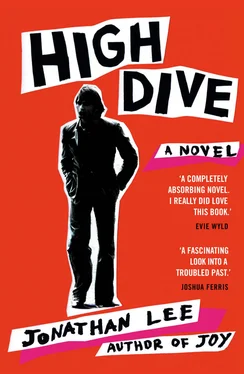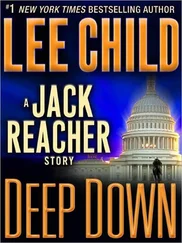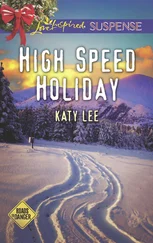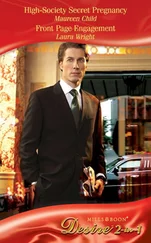‘Right. No. I’ll come to your show, Mari, I will. It’s great news. I didn’t know about all this. I had no idea you wanted to do films and stuff. I’m going to definitely come. I’ll probably buy something. One of the photos.’
‘You couldn’t afford.’
‘No, right. So how much are we talking?’
‘ Expensive ,’ she said slowly, extending the word beyond its means. ‘It would be nice to have you there, I will give you the invite, but if you don’t come I won’t pee on your grave.’
‘Much appreciated. Although, you’d be welcome to!’
You’d be welcome to. You’d be welcome to? What kind of unspeakable pervert was he? It was the latest in a series of missteps that edged him further away from her loveliness, her deep soft voice, her beautiful blunt talk and slow careful smiles.
‘You should see a lawyer about your will, M oo se. And an accountant. About the investments and trusts, things like this. Freya’s future, in case. A backup, yes?’
Backup: somehow the phrase took the red right out of his blood. ‘I’m not going to die, Mari, and there isn’t money to put in trusts and stuff. Forty hours and I’m out of here. Thirty-nine, almost.’
‘My papa used to say this: “Only by providing for family does the man achieve immortality.”’
‘To be honest, Mari, I was hoping to achieve it by not dying.’
‘The world is bigger than us,’ she said, nodding. ‘Both my husbands were blind to this. My third fiancé also.’
‘Third?’
‘You will probably be fine, but you must assume you will not. You cannot shut yourself off from the reality. No man is an Ireland.’
He wanted to pick her up on the pronunciation, correct the error, but to do so would be petty and — after all — Ireland was an island, so it sort of worked, and the idea of islands was probably linked to the non-musical she wanted to make. He had to resist the lure of small things, irrelevance.
There was a long silence. Because what else was there? Apart from detail. Apart from the weird beauty of irrelevant things. His thoughts were drawn all the time towards silliness and insignificance. The bigger stuff could swallow you whole.
He wondered if the current silence was an awkward silence or a non-awkward silence. He thought probably it was an awkward one, but comforted himself with the idea that silences, like events, like good films, like good news, could maybe be perceived differently by different people.
‘Engelbert,’ Moose said. ‘Look! Look at this!’ He pointed at the strip of blue paper tacked around his wrist, inviting the child to play with it. Engel wasn’t interested. He was nuzzling his nose into Marina’s left nipple, eyes closed, his fingers clutching at her sleeve, his leg hooked over her thigh, never letting go.
‘Oh, Moo se,’ Marina said, looking sad. ‘Do you remember when we met? It feels like years ago.’
‘It was,’ Moose said.
‘Y e s, exactly. Years. You were so muscly!’
It was a past-tense compliment, but he’d take it and cherish it. ‘Thank you,’ he said.
When the time came for Marina and Engelbert to leave, he felt a quiver of sad foreclosure. Marina leaned down, inviting him to kiss one of her bold, butterscotch cheekbones. Her hair smelt of fudge and for a lovely moment a strand of it was caught between his lips. Engel consented to a high five.
Was all this his fault, this heart thing? It was and yet it wasn’t. He knew in some locked-up part of himself that he was responsible for his body’s decline, and yet he also could not part with the gorgeously irresistible idea that everything was accidental.
He had been living in London when the news of his dad’s death came through. Still young: twenty-two. At that time he spent his mornings tutoring maths students in a ramshackle east London building that smelt of mould, supplementing his income on Tuesday and Wednesday afternoons by lifeguarding at the London Fields Lido. He was also doing occasional bits of concierge work at a hotel owned by a friend of a friend. The lido job he did mainly to avail himself of free physiotherapy on his right leg in the little clinic out back. His knee was struggling under the weight of all the training Wally Clark was encouraging him to do on the ten-metre platform. Always tried to conceal the pain from Wally, but Wally always knew. He knew Moose was a very good diver, but knew too that he was never going to be a great one. That he’d started too late to be great and that while he might get a few statuettes from the smaller national meets, might even squeeze through the qualifiers for something as big as the Commonwealth Games, he was never going to bring home medals. The first time Wally had seen him dive he’d said, ‘What’s with your arms, Phil? In mid-air you look like a moose.’ There was something inherently sticky about nicknames, particularly in the world of sport. False world, really. Made-up rules, achievements out of proportion. All part of the pleasure.
Undeterred by Wally’s constant curbing of expectations, still more or less in the mindset of the winner he’d been at school, Moose used to travel most evenings to the Merton School of Diving and Trampolining. The journey was slow on the way there and quick on the way back; after a session with Wally his shoulder blades felt like huge leaden wings and his brain, which for the previous two and a half hours had been tensely alive to every mischievously blunt instruction issuing from his mentor’s lips, was rocked into a state of exquisite fatigue. At home he’d have a late dinner with Viv, and then she’d go back to her papers.
The call from his mother came on a Tuesday morning, around eleven thirty. He borrowed a friend’s Ford, was in Brighton within an hour and a half, one wing mirror lost to a line of parked cars. His father was still on the carpet in the living room and the doctor from number 18 was there. A fatal heart attack while smoking in his favourite threadbare chair. No drama. Just fell over. Finished. His mother had dry eyes, was matter-of-fact, but her hands were shaking and shaking. The body didn’t look like a dead body should look. His father had the faintly disgruntled expression of a man interrupted mid-task. His hands were on his stomach, peaceful, as if they realised they no longer had the right to reach for things. Pack of cigarettes next to him. Two Luckys left. Moose got a spare bed sheet and put it over the body.
Someone dies and a lot of questions are born, some of them overblown and others worth examining. What really was the point? What was the point in all that training, all that rigour and precision, the denying yourself ice cream and the desperate nausea after the two-hundredth sit-up? All his life he’d focused on exercising himself. After his father’s death the me-ness of it all — the fanatical self-discipline — felt, for the first time, like selfishness. Would something bigger always intrude on your plans? When was the last time he’d done anything for anyone else? Shouldn’t he and Viv be taking weekends away, having three-course meals somewhere? They’d only been married a year. Why hadn’t he made it to his father’s birthday dinner? Had his father’s constant encouragements when it came to sports actually been a form of coercion? Was his mother, by showing no apparent interest in his athletic feats, the parent who in fact had granted greater freedom all these years — the freedom from expectations?
A few weeks went by without exercise. Thoughts were a sufficiently tiring self-obsession. His father didn’t call to ask for updates on the dives he was trying. He didn’t call because he was dead. For a while Moose had really felt that his father would call, would call him soon, and that they’d have a chance to discuss what the afterlife was like. It was the absence of all future communications that was so shocking.
Читать дальше












